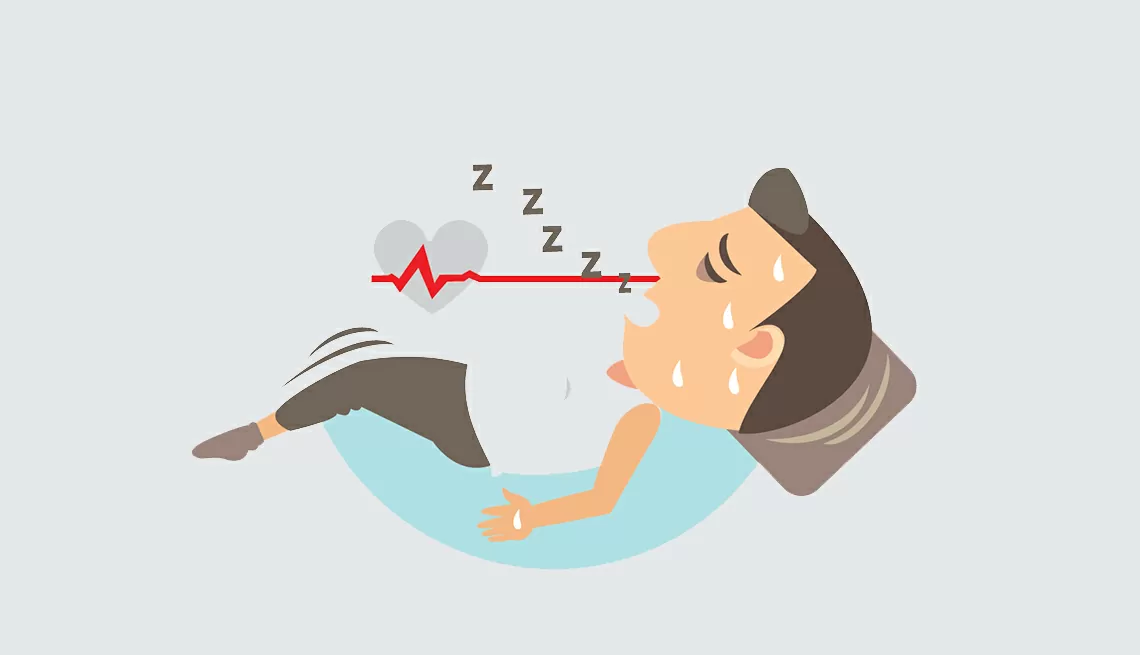Sleep Apnea in Infants


Learn about Causes, Symptoms and Treatment Options.
Sleep apnea in infants can be a big source of concern for you as a parent.Mothers know how frustrating it can be to stand guard over a baby trying to lull it to sleep.
Only very few parents actually know that babies can have Sleep Apnea too.
It might be occurring when your baby experiences intermittent pauses in breathing while sleeping (Periodic Breathing). It affects babies of both sexes within the age bracket of 1 month to 1 year.
Babies born before the 34 week of pregnancy or suffering from illnesses or any other medical conditions are at a higher risk of developing Sleep Apnea. There is also a high probability that if your child has Down syndrome or any other condition that affects it’s upper airways, he or she may develop sleep apnea.
Some Health Professionals believe that Sleep Apnea occurring in Infants is normal because of the developing reflexes in their breathing.If the symptoms are mild, try not to be too disturbed because they usually phase out as the baby grows.
It is normal for babies around 6 months to experience ‘periodic breathing’. This means that your baby breathes faster for a while, then slowly, pauses up for 15 seconds before resuming normal breathing again. If you observe this pattern, relax.
Your baby will sleep like this 5% of the time.
It becomes dangerous when your baby pauses breathing for about 20 seconds or more. The reason why Sleep Apnea in babies is dangerous is because it reduces oxygen supply to the brain and thereby causing sudden death. This is also known as Sudden Infant Death Syndrome (SIDS).
Types of Sleep Apnea in Children
Sleep Apnea in Babies can be classified either into
- How it occurs and
- The age it occurs.
On the basis of occurrence, it is divided into three types:
- Obstructive Sleep Apnea (OSA) which occurs when there is blockage in the upper airway causing repeated wakes during sleep and snoring too. This is common in adults and children above 1 year old.
- Then there is Central Sleep Apnea which is the most common type of sleep apnea in babies. In this case, there is no blockage but the brain fails to signal the muscles to breathe. it is associated with the central nervous system
- The last is Mixed Apnea which is a combination of the two.
The age of the baby is also used to in determine the type of sleep apnea in infants. If sleep apnea occurs in a baby born up to 37 weeks of pregnancy, it is called apnea of prematurity. But if the baby is born after 37 weeks, this is called apnea of infancy.
When Should I be Worried?
Babies with Sleep Apnea tend to stop breathing during sleep and this can lead to Sudden Infant Death Syndrome (SIDS).
Do you know that Sleep Apnea in Infants claims at least 2,500 babies each year and that is in the United States alone?
No one wants to lose a child. Not you. Not me. Since sleep apnea is not easily noticeable in children, here are the symptoms you have to look out for.
NEXT: Sleep Apnea in Children Symptoms.
Recent Posts
How do I create an engaging and informative online quiz or assessment?
Creating an engaging and informative online quiz or assessment can be a powerful tool for… Read More
What are the most effective methods for managing and reducing work-related stress in the hospitality industry?
Work-related stress is a common issue in the hospitality industry, where employees often face long… Read More
How can I improve my assertiveness and communication skills in a leadership position?
In a leadership position, assertiveness and effective communication skills are crucial for success. Being able… Read More
What are the key elements of a successful employee recognition and rewards program?
Employee recognition and rewards programs play a crucial role in motivating and engaging employees, as… Read More
How do I effectively manage and respond to customer feedback and reviews?
Customer feedback and online reviews play a crucial role in shaping a company's reputation and… Read More
What are the best strategies for effective time management as a stay-at-home parent?
Effective time management is crucial for stay-at-home parents who juggle multiple responsibilities on a daily… Read More